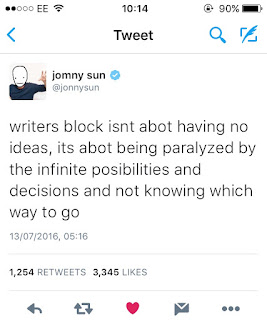(https://quizlet.com/20734975/hallidays-functions-of-speech-flash-cards/)
Featuring examples from the Zachy 2;4 drawing and healing robot transcripts:
INSTRUMENTAL - To satisfy a certain need or requirement. Eg: 'can you do it Mummy?' [handing H cellotape]
REGULATORY - To control or influence other people's behaviour and actions. Eg: 'lease can you pick it up'.
INTERACTIONAL - Used to maintain relationships and develop them. Eg: 'you are a star (.) little man'.
PERSONAL - Used for expression of unique opinions, ideas and to portray personal identity. Eg: 'I don't like bolognay'.
REPRESENTATIONAL - To relay information or facts to others. Eg: 'blown away dose papers'.
IMAGINATIVE - Taking on certain imaginative characters or making a new world up using the imagination. This is mainly exhibited during play. Eg: 'then I had to put the deep buttons on, and then I had to go in'.
HEURISTIC - Used to widen understanding of the environment surrounding them. Eg: 'where's my little pad gone?'.
John Dore also said that there were categories for which CLA falls into, however, his 8 sections were different:
(https://quizlet.com/12074480/john-dores-infant-language-functions-flash-cards/)
LABELLING - The naming of or identification of an object, person or experience. Eg: 'my little pad', 'Mummy'.
REPEATING - echoing something just spoken by an adult.
ANSWERING - in response to an utterance from another speaker they give a direct answer. Eg: replying to H asking if they have to wait 'yeah (.) it's gonna be a long time though'.
REQUESTING ACTION - A demand for something like food, a drink or a toy etc. Eg: 'please can you pick it up', 'can you do it Mummy?'
CALLING - Attempting to gain attention via shouting.
GREETING - Saying hello.
PROTESTING - Denying requests. Eg: when H says 'how about yooou pick it up' Z says ' but (.) I want you to pick it up (.) for special'.
PRACTISING - Repeating and using language when no adult is present.



